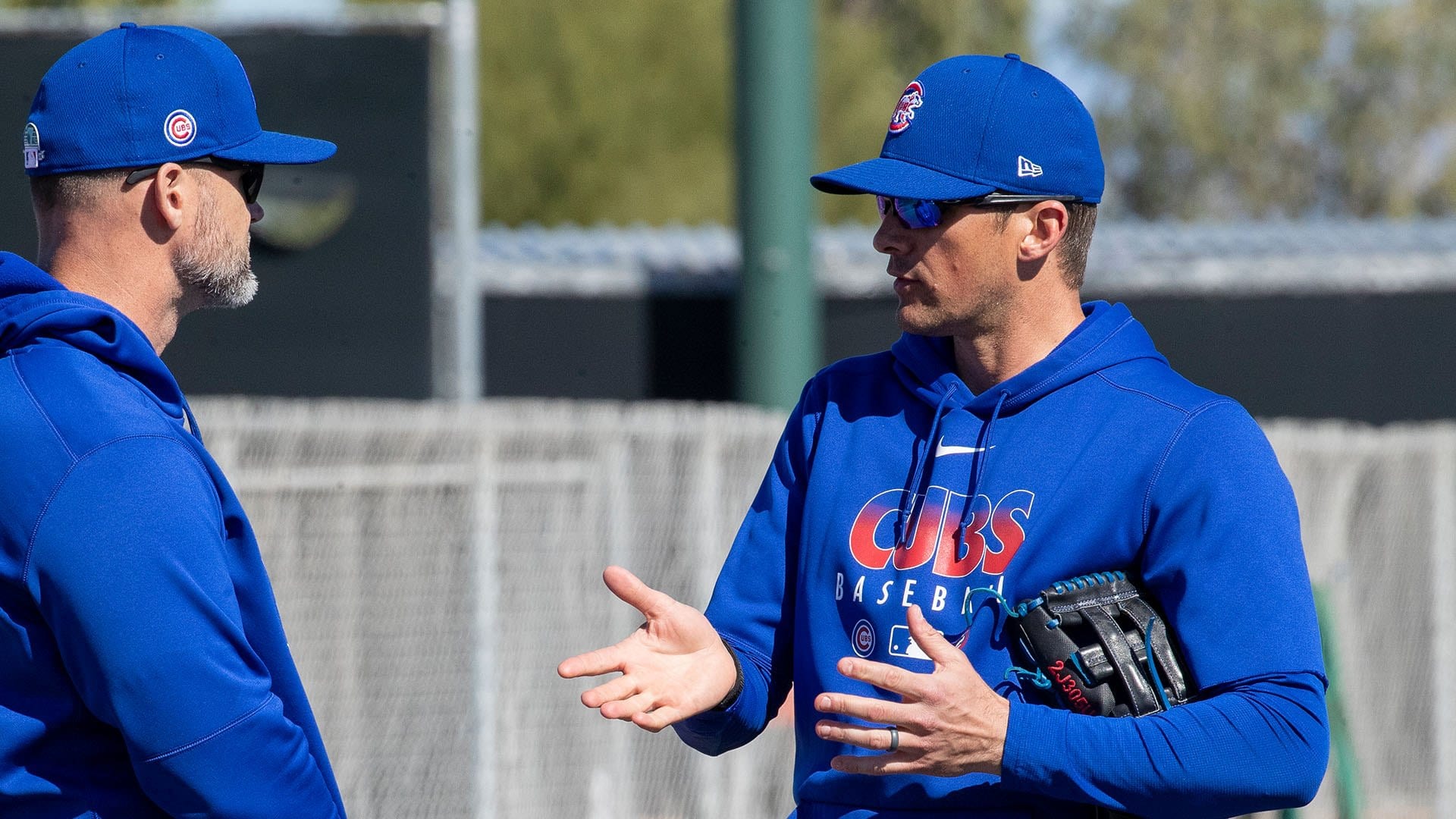Why Cubs pitching coach Tommy Hottovy wanted to share his powerful story of COVID-19 battle

The COVID-19 pandemic really hit home for the Cubs during the MLB shutdown.
Pitching coach Tommy Hottovy contracted the coronavirus about six weeks ago and he shared his powerful story Wednesday on a Zoom call.
The 38-year-old got emotional as he detailed his harrowing battle with COVID-19, which saw him quarantined from his wife and two children for 30 days. At its worst, he couldn’t talk without coughing and had a fever so bad that it kept him up throughout the night.
“I felt it was important for me to talk through what I went through because too much of what’s out there is the easy stories of what people go through with this,” Hottovy said. “I went through some really weird stages through this whole process — like depression, thinking, did I do something wrong? How could I put my family in that kind of situation?
“It obviously affects people differently and if my story and my journey through this helps one person realize how severe this can get and if that saves one life, then I want my story to be heard. I’m sorry, I’m emotional because it’s still fresh. I’m only two weeks from finally testing negative and 30 days of quarantine from my family. My wife, what she had to endure for a month, you just don’t want to put anybody through that.”
Hottovy spent the 30 days confined to a spare bedroom of his house, away from his family to try to keep them safe. His wife and kids never contracted the virus and his wife had to diligently clean the house every day for the month, staying up until 2 a.m. to sanitize and keep the virus contained.
Since cleaning equipment is so hard to come by online, they had to rely on friends to drop off supplies. Whenever Hottovy would go out of the spare bedroom, his wife and kids had to clear the house, open all the doors and he walked through without touching anything.
He went to Northwestern Memorial Hospital 12 days into the ordeal when his breath got really shallow and the doctors wanted to check his liver and kidneys. He was not put on a ventilator and was released after eight hours with antibiotics and a breathing apparatus to help get medicine into his lungs.
“What I was told is I had a lot of what the people who do get put on a ventilator had — my body was just able to fight it enough to not have to be put on one,” he said.
Hottovy underwent testing about every five days. He thought he might test negative on Day 25, but still wound up positive for the coronavirus. He finally received a negative test on Day 30 from a test he took the previous day.
Despite the awful experience for Hottovy and his family, he said he’s “all-in” on the season and planning to travel with the Cubs. He is encouraged by how much thought and preparation the league put into the safety protocols and believes baseball’s return will bring hope to fans around the country.
He also wants to serve as a resource for the players and their families through a difficult time, helping everybody understand the mental aspect and how the virus affects families.
“That’s really why I wanted to tell my whole story through this because there’s too many stories out there of [people who are] asymptomatic or, ‘oh yeah, it was easy, I had 4 days of fever and it was fine and I was cleared in like 14 days,'” Hottovy said. “I just was affected differently. The pitchers knew the whole time from all our Zoom calls and things going on, so them getting to live that kind of experience for me hit home a little bit. And then when the position players found out and a lot of them reached out to me, they asked a lot of questions.
“When you know somebody that gets it, it hits home and it’s significant. It puts into perspective what we’re dealing with. No one is immune. You hear a lot of the stories out there — ‘OK, they’re professional athletes; they’re in great shape. If they get it, they’ll be fine, they won’t die.’ The rhetoric is always, ‘they’ll be fine, they’re not gonna die.’ But people live with family members that are not in the same shape as them. They’re not professional athletes. They are potentially high-risk individuals and it’s what we have to wrestle with everyday — not only keeping ourselves safe and our team safe, but also what we can do to keep our families safe.
“When we’re cranking this thing up and we’re doing all these things, we’re around a lot more people, we’re gonna be traveling, we’re gonna be doing a lot more things, it’s gonna be difficult, it’s gonna be a challenge. But it’s something that I think we all signed up for and in my case, I want to be here for these guys. I didn’t want to opt out just because I had it once. Obviously I don’t want to get it again — I don’t want to go through what I went through and go through that whole process again — but I want to be here for them and be able to answer those questions and be accessible.”


